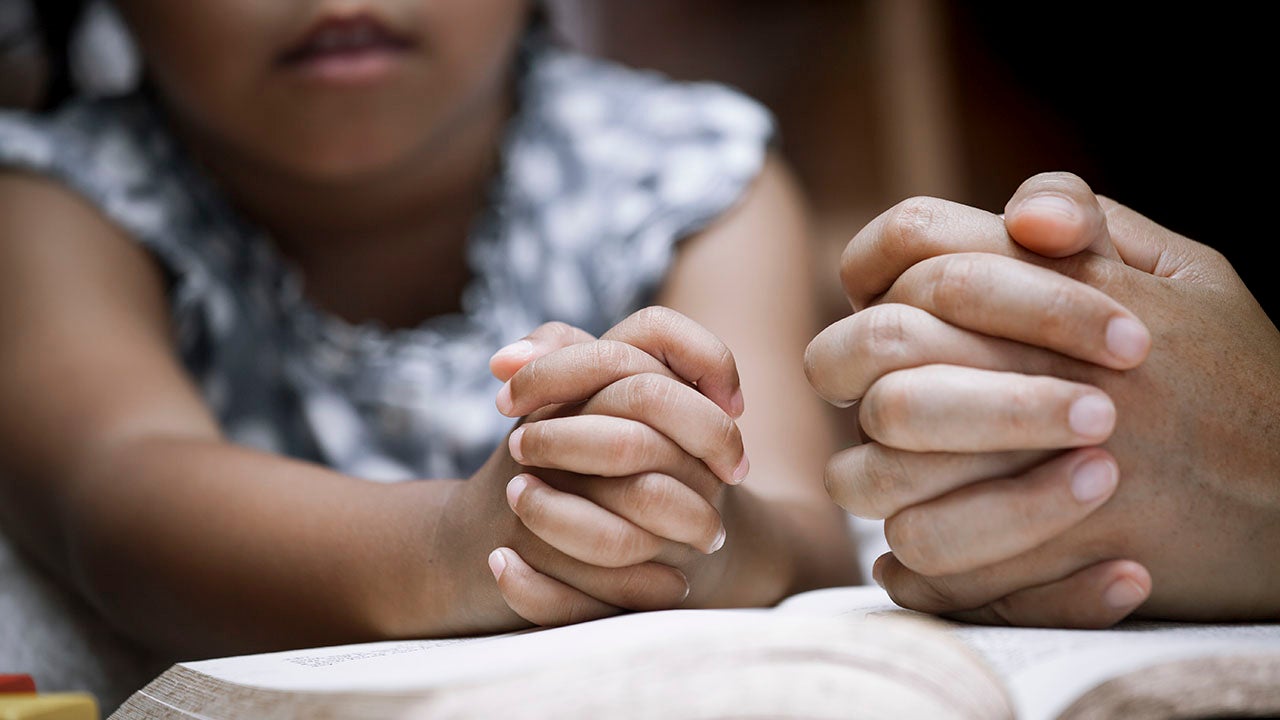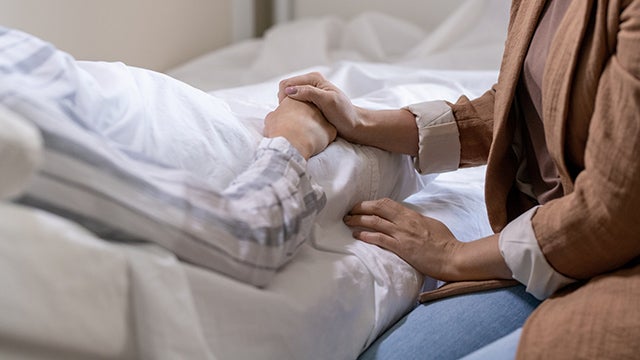Like crises before it, the Covid-19 pandemic has revealed the importance of government agencies partnering with faith organizations which often are on the frontlines of response. Most religious communities stopped in-person activities while continuing to provide their communities with material, emotional, and spiritual support through virtual programming. However, the designation of religious activities as “nonessential” by government officials opened the door for some faith groups to feel misunderstood at best and targeted at worst. This led to prominent examples of faith communities violating public health orders and endangering the health of their members as I discussed in my recent article in The Hill.
To decrease the likelihood that issues like shutdowns become political lightning rods, government leaders need to increase their own understanding of the different faith communities they serve. This is the first step to greater engagement and partnership.
For government actors and emergency responders to provide care to people in need, they need to recognize that they are often operating in religiously plural environments. Understanding the particular needs of different religious communities is essential to providing care in ways that foster recovery and resilience rather than worsen the impacts of already deeply unsettling experiences. Providing religiously and culturally appropriate care is both a matter of fairness and equity.
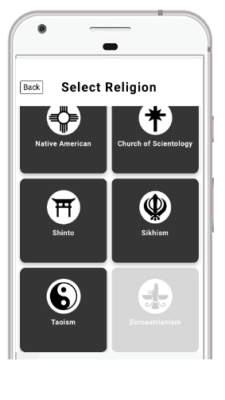 The Disasters & Religions app was created to address the needs of those working in disasters and crisis efforts. The information in the app is adapted from resources created by three leading organizations in the field of religious literacy and competency: the National Disaster Interfaiths Network (NDIN), New York Disaster Interfaith Services (NYDIS), and the University of Southern California’s Center for Religion and Civic Culture (CRCC). These groups built partnerships between religious actors and government agencies, and NDIN and NYDIS have decades of experience in providing disaster human services. Tools developed by NDIN and CRCC are used by the US Department of Homeland Security, the Federal Emergency Management Agency, and the American Red Cross.
The Disasters & Religions app was created to address the needs of those working in disasters and crisis efforts. The information in the app is adapted from resources created by three leading organizations in the field of religious literacy and competency: the National Disaster Interfaiths Network (NDIN), New York Disaster Interfaith Services (NYDIS), and the University of Southern California’s Center for Religion and Civic Culture (CRCC). These groups built partnerships between religious actors and government agencies, and NDIN and NYDIS have decades of experience in providing disaster human services. Tools developed by NDIN and CRCC are used by the US Department of Homeland Security, the Federal Emergency Management Agency, and the American Red Cross.
The app presents easily accessible religious literacy and competency information on 27 unique religions from the Baha’i faith to Zoroastrianism. It includes 12 Christian denominations so that communities can be served appropriately. In sharing this information, the app is helping disaster responders build partnerships with religious leaders and better serve America’s diverse religious communities.
“In times of crisis, this app will equip responders with resources to feed, shelter, counsel, bury, or provide emotional and spiritual care to the diversity of people of faith, among many other unmet needs, during disasters and public health emergencies that face our country,” said Peter B. Gudaitis, executive director and CEO of NYDIS and president of NDIN. “Three-quarters of US residents are people of faith. Yet as a country, we often struggle to understand the unique religious beliefs, practices, and day-to-day needs of each person.”
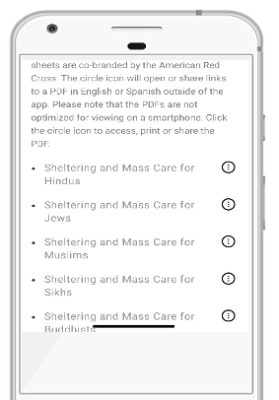 The work to build religious literacy among government agencies is championed by IAP’s Powering Pluralism Network and by Melissa Rogers, former special assistant to President Barack Obama and executive director of the White House Office of Faith-Based and Neighborhood Partnerships. “This app is a terrific new resource for government officials and their staff as well as religious leaders,” Roger said. “It includes tips about religious literacy, instructions on how to partner with the government, and links to trainings. This is exactly the kind of resource that disaster responders need and can readily use. It will help partners understand each other better and thus will result in better service for people in need.”
The work to build religious literacy among government agencies is championed by IAP’s Powering Pluralism Network and by Melissa Rogers, former special assistant to President Barack Obama and executive director of the White House Office of Faith-Based and Neighborhood Partnerships. “This app is a terrific new resource for government officials and their staff as well as religious leaders,” Roger said. “It includes tips about religious literacy, instructions on how to partner with the government, and links to trainings. This is exactly the kind of resource that disaster responders need and can readily use. It will help partners understand each other better and thus will result in better service for people in need.”
In our religiously diverse country, we can all benefit from tools like this app that encourage stronger relationships between faith communities and government agencies and respect the essential role that religion plays in the lives of many Americans.
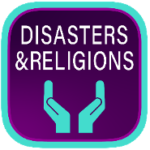 You can download the Disasters & Religion app on Google Play and the iOS App Store. Learn more about the app here.
You can download the Disasters & Religion app on Google Play and the iOS App Store. Learn more about the app here.
Brie Loskota is the Executive Director of the Center for Religion and Civic Culture at the University of Southern California in Los Angeles. Brie is the IAP Fellow on Religious Literacy where she works to increase religious literacy among philanthropic institutions and develop a cohort of scholars and practitioners that will together push forward the field of religious literacy.
The Inclusive America Project is committed to advancing a thriving US Religious Pluralism and believes an important step to achieving this goal is sharing diverse voices and ideas across our platforms. In this spirit, we are pleased to publish blogs written by external authors working in and around the space.
The views and opinions expressed in this blog do not necessarily reflect those of the Aspen Institute.
